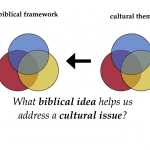What qualifies a person to be a pastor? Are you aware of a controversial translation in Titus 3 that influences how many Chinese church leaders think about this question?
How we interpret the text has important implications (or consequences) for the church. I refer to Titus 1:6. I’ll quote the ESV in context followed by the translation of v. 6 in the CUV (和合本).
This is why I left you in Crete, so that you might put what remained into order, and appoint elders in every town as I directed you— 6 if anyone is above reproach, the husband of one wife, and his children are believers and not open to the charge of debauchery or insubordination. 7 For an overseer, as God’s steward, must be above reproach. He must not be arrogant or quick-tempered or a drunkard or violent or greedy for gain, 8 but hospitable, a lover of good, self-controlled, upright, holy, and disciplined. 9 He must hold firm to the trustworthy word as taught, so that he may be able to give instruction in sound doctrine and also to rebuke those who contradict it.
若有无可指责的人, 只作一个妇人的丈夫, 儿女也是信主的, 没有人告他们是放荡不服约束的, 就可以设立 (题多1:6)
A wooden translation of the Chinese (CUV) says: “…children also believe the Lord.”
By contrast, other translations echo the HCSB, which says, “…having faithful children not accused of wildness or rebellion” (cf. NKJV, NET). Obviously, the difference in translation is neither subtle nor trivial.

“Believing” or “faithful” children?
In my interpretation below, don’t worry when you see Greek words. I add it for those familiar with the language. Even if you don’t know Greek, you’ll see the observations I highlight.
Let’s first look at the Greek before considering the context and other relevant passages. Verse 6 in Greek says:
εἴ τίς ἐστιν ἀνέγκλητος, μιᾶς γυναικὸς ἀνήρ, τέκνα ἔχων πιστά, μὴ ἐν κατηγορίᾳ ἀσωτίας ἢ ἀνυπότακτα.
The Greek τέκνα ἔχων πιστά by itself could certainly be translated “children having faith”; however, this is not only possibility (as we see above). In my view, Paul speaks of children’s conduct/behavior, not whether they are believers.
To understand why, compare what Paul says in the near context and elsewhere, especially Paul’s specific wording. Below, I’ve outlined Titus 1:6
εἴ τίς ἐστιν ἀνέγκλητος, μιᾶς γυναικὸς ἀνήρ,
τέκνα ἔχων πιστά,
μὴ ἐν κατηγορίᾳ ἀσωτίας ἢ ἀνυπότακτα
… having faithful children,
not open to the charge of debauchery or insubordination.
Many people don’t notice or realize the last phrase (grammatically) describes the children, not the church elder. Accordingly, the last clause clarifies the point of πιστά (“faithful”). An elder should raise his children so they will not be unruly, out of control, disrespectful, etc. In other words, they are faithful children, living in a manner respectful to their parents.
“Faith(fulness)” in Context
Compare Paul’s wording in Titus 2 as well as in 1 Timothy (where Paul also speaks of an elder’s qualifications). In the following passages, we’ll see how frequently Paul mentions the expectation that people show moral “faith(fulness)”, not simply “have faith.”
In Titus 2:9–10, Paul writes,
Bondservants are to be submissive [ὑποτάσσω] to their own masters in everything; they are to be well-pleasing, not argumentative, not pilfering, but showing all good faith [ἀλλὰ πᾶσαν πίστιν ἐνδεικνυμένους ἀγαθήν].
In a moment, we’ll again see the word ὑποτάσσω [be submissive], on which Paul elaborates using the word “faith” [πίστιν]. For those curious, the CUV translates the latter as “要显为忠诚” [“showing loyalty”].
First Timothy 3 reinforces the above interpretation. What Paul says negatively in Titus 1:6, he states positively in 1 Tim 3:4–5, which I outline below.
He must manage his own household well,
having children [who are] in submission
[who have] with all dignity
for if someone does not know how to manage his own household,
how will he care for God’s church?
In Greek:
τοῦ ἰδίου οἴκου καλῶς προϊστάμενον,
τέκνα ἔχοντα ἐν ὑποταγῇ
μετὰ πάσης σεμνότητος·
[FOR] εἰ δέ τις τοῦ ἰδίου οἴκου προστῆναι οὐκ οἶδεν,
πῶς ἐκκλησίας θεοῦ ἐπιμελήσεται;
Paul combines the wording from Titus 1:6, 2:9–10. The children should be submissive [ὑποταγῇ]. Yet, he now adds the word σεμνότητος [“dignity”], which appears a few verses later.
In 1 Tim 3:11, Paul says, “Their wives likewise must be dignified [σεμνάς], not slanderers, but sober-minded, faithful in all things [πιστὰς ἐν πᾶσιν].”
Once again, when speaking of the qualification of an elder, Paul refers to the faithfulness [πιστὰς] of a close relative. (The CUV says, “凡事忠心”, i.e. “loyal in all things”). Interestingly, v. 11 uses the same descriptor for both children and wife (1 Titus 1:6), namely “dignified” (both using forms of σεμνός).
A Summary of Paul’s Idea
What is Paul’s point?
As 1 Tim 3:4–5 makes explicit, elders should manage their home in such a way that their wives and children are faithful, honorable, and respectful. The interchange of descriptions (submission, dignified, etc.) and his multiple references to faith(fullness) show that Paul is thinking about character not conversion.

Disastrous Consequences
Here are a few problems with the CUV and ESV’s translating Titus 1:6 to mean “believing children”.
- Theologically
If we say a person is disqualified from being an elder because his children do not follow the Lord, what does this imply?
It suggests a father has the power to change his child’s heart. This is preposterous for two reasons. First, only God changes hearts. Second, the child’s heart does not reflect on the elder’s character since he cannot control another’s faith.
If one accepts the CUV/ESV, readers might infer that they do have that ability––to control whether others in fact believe or not believe (rather than God).
- Evangelistically
Pastors will feel incredible inward pressure to compel or force their children to believe (as if that were actually possible). If a child does not believe in a timely manner, one will be tempted to manipulate a child to “make a decision” for Christ.
At the very least, he’ll likely be content to accept any sign of faith yet without helping the child to probe more deeply his/her heart. Further discussion is needed to make sure the child does not merely assume (s)he has faith because the parents have faith. If an elder is not careful, he might unwittingly turn a blind eye to his children’s self-deception.
- Pastorally
What happens as children grow?
Let’s say that a child eventually changes his profession and says he does not believe, what happens to the pastor? Even if the elder has shared the gospel, given a godly witness and urged faith/repentance, that elder (according to the CUV/ESV) becomes disqualified from pastoring.
This possibility casts a shadow over the pastor’s ministry. The fear of losing one’s job or being discredited for what he can’t control can lead to unhealthy responses. For example, he might compromise his parenting in order to “ensure” the child does not go wayward (at least outwardly). This could take the form of overly strict discipline or excessive appeasing of the child.
Furthermore, the pastor might compromise the church’s theology by affirming a type of “easy-believism.” He could claim his prodigal child is definitely saved since he “prayed a prayer of salvation” when he was a small child, despite overwhelming contrary evidence the young child never had true faith (but simply wanted to please his/her parents).
Let me know what you think? Have you run into this issue where you live? Have you ever discussed Titus 1:6 with your local friends?
If you don’t use Chinese, how does the Bible in your local language translate this passage?

















